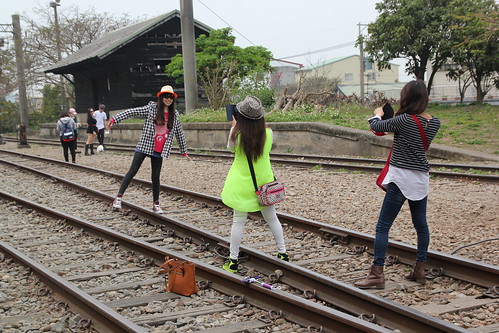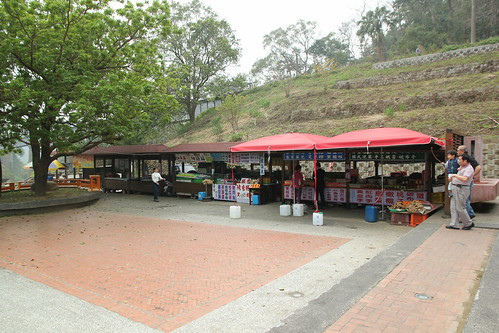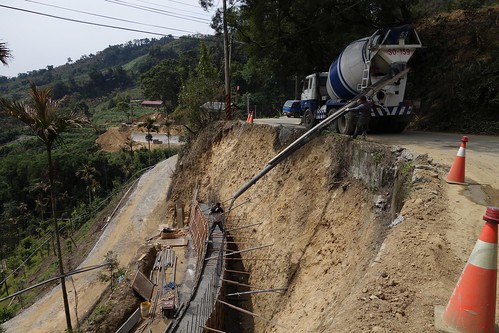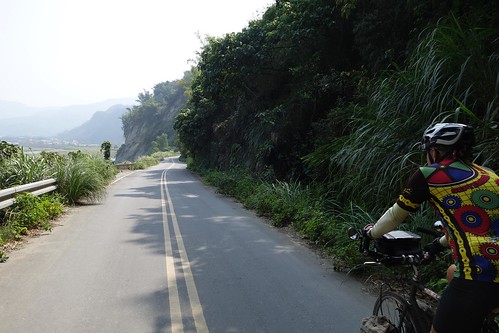The strange, bullet shaped monument to the 1935 earthquake at Tai-an station.
FocusTaiwan reports that electricity rates are going to receive the largest cut ever: 9.5%.
It was decided at the meeting that electricity rates will be cut by 9.56 percent, the biggest cut in the country's history, with every kilowatt hour cut to NT$2.5488 from NT$2.8181 on average.
Shen noted that the rate reduction mainly reflects a marked drop in international fuel prices.
Electricity rates after the cut will be even lower than the NT$2.6001 per kWh in 2011, one year before double hikes of fuel and electricity rates that pushed up commodity prices and invited complaints from the general public.
The
awesome Kharis Templeman, always policy-oriented, immediately pointed out that this will create demand for nukes, which Taipower loves, since cheaper electricity will drive up demand. Taiwan needs a new energy policy, he observed. I should add that by driving up demand, lower prices will also drive down demand for conservation and renewables, which Taipower hates. It will also create profits for large KMT-connected firms in energy-intensive industries like steel and aluminum whose bottom line rests heavily on electricity prices.
But to my mind this move is political. It's the biggest cut ever, and it comes right before Tsai Ing-wen assumes power. This means that at some point the DPP Administration will have to raise electricity prices, having the effects noted in the third paragraph there -- creating public discontent with the government. That was one of the factors which drove Ma's drop-off between 2008 and 2012.
Note also that Taipower has large debt problems. Not eight months ago
the China Post reported:
Taiwan Power Company (Taipower, 台灣電力公司) said yesterday that if the scheduled price hike does not occur in October, the company will lose an additional NT$13.7 billion, totaling a NT$70 billion loss for the year, said Taipower spokesman Roger Lee (李鴻洲),.
If the price hike is not implemented in October, Taipower will accumulate a total deficit of NT$263.2 billion, which is more than two thirds of its NT$330 billion equity, according to Taipower.
In an effort to rationalize electricity prices, the government rolled out a three-phase price hike plan in 2012. The second-phase price hike was set to start in October in 2012, but was then postponed and scheduled to resume in October, 2013. Given lower-than-expected first quarter GDP growth, some have suggested the price hike may be postponed.
.....
Taipower incurred a loss of NT$62.1 billion in 2012, and accumulated a total loss of 193.6 billion. Taipower incurred a loss of NT$20.3 billion from January to April, and has accumulated a total deficit of NT$213.9 billion.
Nevertheless, when October came, the government
actually cut prices. Anyone think all those massive debts have been cleared up? Eventually, even if fuel prices stay low, the DPP Administration may feel the pressure to raise electricity prices to service that debt. Certainly, if it does not, it may open itself to accusations of mismanagement... which is, I submit, the whole purpose of this price lowering charade. This suggests that the first thing the DPP Administration should do when it comes to power is reverse this decision so that the impact isn't felt so strongly in subsequent elections, and start getting money into Taipower to put in all the renewable systems that Taiwan needs.
Ketagalan Media is constantly adding new writers. Today another sharp pen premiered: Calin Brown, on
racism in Taiwan. The nice thing about this was that it focused not on the experiences of westerners, but on the Han-Aborigine relationship.
Chinese expansion made aborigines subject to heavy-handed, sometimes brutal, assimilation practices. In the 1940s, the Chinese Nationalist Party took away centuries-old aboriginal ancestral lands – the aborigine communities’ main source of income. Now, they’re still more likely to be unemployed, more likely to hold lower-paid or riskier jobs, and less likely to graduate from college. According to the Council of Aboriginal Affairs at the Executive Yuan, the average wage of aboriginal workers in 2014 was 75 percent of the average wage earned by a Han-Chinese counterpart.
It reminded me of
Martin William's classic 1999 article on the Pingquanhui, a KKK-like organization of Han to suppress and expel aborigines. Do not miss that article. It is hosted on the useful
First Nations website. Vice.com hosts
a nice piece on Taiwan's changing relationship with its aborigines.
President-elect Tsai Ing-wen, the first woman to serve in the post, has already vowed to apologize for the past suffering of Taiwan's natives, and to press for reforms in policies towards the island's roughly 500,000 indigenous people.
"Why apologize? Well, looking back through history, Aborigines gradually lost their lands while under the rule of different governments and foreign powers," Tsai said last year. "Even today, they continue to be at a disadvantage in areas including economy, education and health."
Speaking of Tsai, the new administration formally announced that its premier
will be finance and econ expert Lin Chuan.
Lin, born in Kaohsiung on Dec. 13, 1951, was chief of the Directorate-General of Budget, Accounting and Statistics of the Executive Yuan between 2000 and 2002, and minister of finance between late 2002 and early 2006 under then-president Chen Shui-bian (陳水扁). He has no party affiliation.
Lin is now the chief executive officer of the New Frontier Foundation, a think tank chaired by Tsai. He played a major role in her presidential campaign.
Although Lin worked exclusively on financial matters when in government, Tsai said: “I promise everyone that Lin Chuan’s Cabinet will not be one focused on economics and finance,” but one of reform, and one that is good at communicating and getting things done.
This is a neat signal to local and foreign markets, and also to China, since Lin is hardly a firebrand on independence. But the Tsai Administration, at least based on the media speculation, is recycling lots of Chen Administration people (on the other hand, who else is there?), as the
Taiwan Law Blog opined the other day (if you're not following him on the blog and twitter, you should be). Hey, don't miss his discussion of
Mongoia and the ROC Constitution.
The Hong Kong Economic Journal has
a discussion of the fantasy proposal of a rail link under the Taiwan Strait between Fujian and Hsinchu. It's a non-starter, but fun to think about, like
Harry Harrison's classic SF novel of the tunnel under the Atlantic Ocean between the UK and its North American colonies. Some people regard it as a threat, but it's fanciful to imagine that the PRC could rush troops through it to take Taiwan.
Some new polls out this week. TISR, the staid establishment poll group,
found that people are rejecting One China in all its forms:
Asked about their opinions on the statement that “one China” refers to the PRC, an overwhelming majority, or 81.6 percent, of respondents opposed the concept, with only 9.2 percent accepting the notion.
Even if “one China” refers to the ROC, 60 percent of those polled still disliked the idea that both sides belong to “one China,” but the percentage of people willing to embrace the notion rose to 28.8 percent.
The poll observes that the fake 1992 Consensus, invented in 2000 to cage a future non-KMT president, is not strongly supported:
About 38 percent of respondents believed Tsai should not acknowledge the “1992 consensus” under such a condition, while 33.4 percent urged the incoming president to do so, the poll showed. Nearly 29 percent declined to express their opinions.
.....
Respondents aged between 20 and 39 tended to aspire to see Tsai shrug off the “1992 consensus,” while those in the 40 to 59 age group generally believed she should welcome the consensus, the survey indicated.
The “1992 consensus” refers to a tacit understanding between the Chinese Nationalist Party (KMT) and the Chinese Communist Party (CCP) that both sides of the Taiwan Strait acknowledge there is “one China,” with each side having its own interpretation of what “China” means.
Former Mainland Affairs Council Chairman Su Chi (蘇起) has admitted that he made up the term in 2000.
Tsai's position of evading acknowledgement of the 1992 Consensus has strong support from the young. Several other polls show that support for kowtowing to China on this is under 35%. A
UDN poll noted that over 70% identify as Taiwanese, and like a couple of other polls, found that a stubborn minority would declare independence even if it meant war.
Thus, Tsai can point to considerable domestic support for her position, and further, Beijing currently does not consider her to be a "radical". J Michael Cole t
oday points out in SCMP that Beijing will likely not turn the screws on Tsai:
If we believed many of the article headlines that have appeared in international media since the January 16 election of Tsai Ing-wen of Taiwan’s Democratic Progressive Party, we would think the roof was about to come crashing down on the Taiwan Strait. Time and again, articles and editorials have warned that if Tsai refuses to recognise “one China” or the 1992 consensus, Beijing could – or should – punish Taiwan by, among other things, severing all official and unofficial contact. Such alarmism, however, doesn’t pass the reality check.
Indeed. The total failure of China to take any concrete action against Taiwan during the Chen Administration never seems to make the media and commentariat pause for thought in its predictions that the sky is imminently falling in the Taiwan Strait. I am sure that one day when China finally goes to war, this crowd will blithely pat each other on the back for being so right. And blame Taiwan, of course. The claim that "Taiwan provokes tension!" serves the PRC, not peace. It's the PRC that creates and determines the level of tension in the Taiwan Strait, which it uses to influence US policy and US commentators. Very successfully, I might add.
VISITING SCHOOLERS: The local media is
in a tizzy as longtime US government Taiwan expert Richard Bush III, Denny Roy, and Bonnie Glaser are coming to Taiwan, allegedly to convey the US position on Taiwan and how it should behave to Tsai Ing-wen, who apparently is not aware of it, although it has been in the news since roughly 1990 or so. That is, they are supposed to be telling Tsai to be a good girl and not rock the boat, according to media reports, by announcing independence or behaving like the awful Chen Shui-bian, who riled relations with China so much that Taiwanese investment in China reached around $200 billion, tens of thousands of Taiwanese went to work there, and the Hong Kong-Taipei air route was the busiest in the world. As you can see, China totally punished Taiwan by cutting off relations. O wait...
Anyway, hopefully they will convey sympathy and support, and not dial back the clock to 2005. With Chinese expansionism on the rise, the US should be seeking ways to bring Taiwan and Japan together under the US umbrella. Taiwan can be a powerful asset, if only they US has the imagination to use it. Hopefully also they will help Tsai find ways to delink ROC claims in the South China Sea from China's, and deprecate them, so that Taiwan can build much-neglected relationships with the nations bordering that region. Need US help there!
Let's also recall that the bit of theater may not even by aimed at Tsai, but at Beijing, to show it that the US is doing everything it can to keep the lid on the DPP. Though, as a someone noted in a conversation about this today, PRC analysts don't see Tsai as very willing to rock the boat.
MEDIA: Shout out to
Reuters for its excellent background on Taiwan's historical relationship with China and its various rulers...
China considers self-ruled Taiwan a wayward province, to be brought under its control by force if necessary. Defeated Nationalist forces fled to Taiwan in 1949 after the Chinese civil war.
......
Japan ruled Taiwan as a colony for about five decades until the end of World War Two. China’s last dynasty, the Qing, had ceded Taiwan to Japan in 1895 after losing the first Sino-Japanese war.
How many times have you seen a reference to 1895? That's great. Now if could just get them to start writing that it is problematic whether the Qing were Chinese...
Once again, note the way the tone of the reporting has changed since Tsai won the election.
FOR AMUSEMENT PURPOSES ONLY:
Ted Galen Carpenter continues to party like its 2005, with (yet) another recommendation that Taiwan be sold out to China, this time in the guise of Finlandization, complete with PRC bases on Taiwan, just to make China feel safe. Poor, put upon China! As is typical with Carpenter, he simply ignores the effect of such an agreement on neighboring states -- Japan is mentioned only twice and not at all in the context of Chinese expansionism, for example. And what about the islands in the South China Sea, and the Senkakus, claimed by the Republic of China? Rather like a dumb but enthusiastic golden retriever who always wants to play ball with you, Carpenter, bless his heart, never ceases to entertain.
PS: If you haven't bought
A Pail of Oysters, Vern Sneider's searing novel of Taiwan in the early 1950s, read the reviews below and get it for Kindle or epub. It's a steal at $2.99.
_______________________
[Taiwan] Don't miss the comments below! And check out my blog and its sidebars for events, links to previous posts and picture posts, and scores of links to other Taiwan blogs and forums!

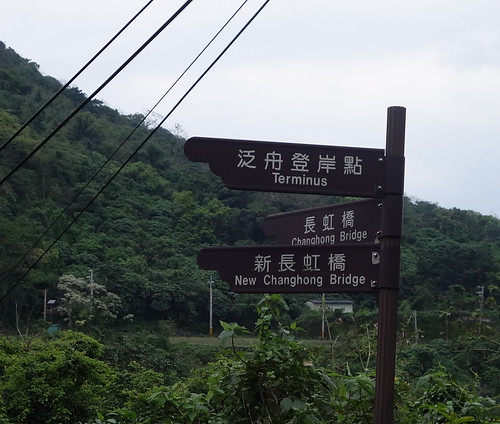
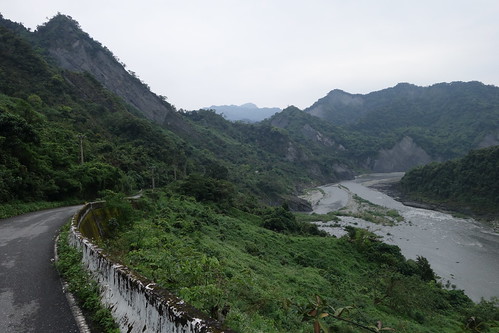
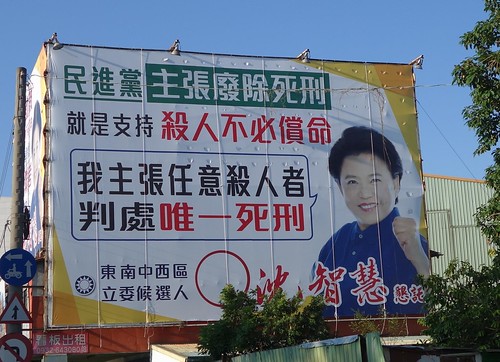

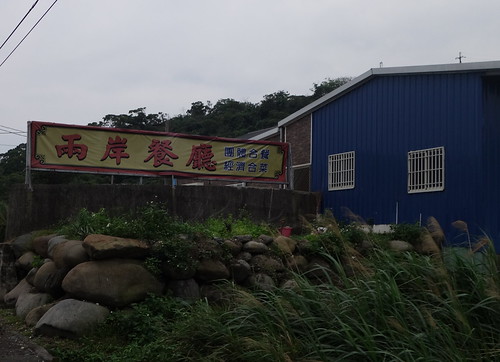
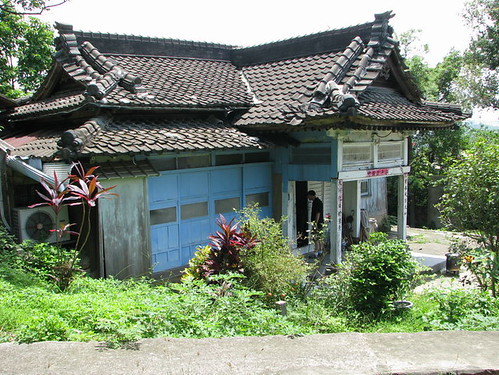
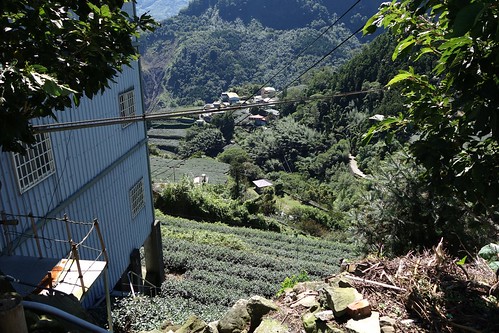
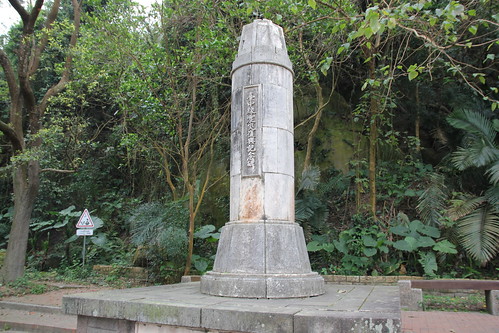
 A Pail of Oysters
A Pail of Oysters
